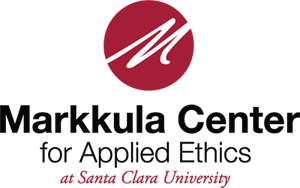Nora Scheland, U.S. Copyright Office; Our Summer of Artificial Intelligence: Copyright Office Hosts Two Webinars on Copyright and AI
"Artificial intelligence (AI) has become a significant new focal point for the Copyright Office in 2023. The Office launched an AI initiativein mid-March, which was followed by four comprehensive listening sessions in April and May and then, most recently, by two very popular webinars in June and July.
The webinars, which continued to break attendance records for the Copyright Office, provided an opportunity for the Office to dive deeper into the copyright registration guidance for AI-generated works and perspectives on how AI impacts copyright systems both domestically and across the globe. The webinars were open to the public, and everyone from copyright experts to those curious about copyright could take something away.
The Office’s first webinar in June, Registration Guidance for Works Containing AI-generated Content, was hosted by Associate Register of Copyrights and Director of Registration Policy and Practice Rob Kasunic and deputy director of registration policy and practice Erik Bertin. Kasunic and Bertin walked attendees through the Office’s registration guidance and discussed a variety of hypothetical examples of copyright registration claims featuring some amount of AI-generated content and how the Office would evaluate them. Through the detailed examples, Kasunic and Bertin offered key insights and recommendations for how applicants can navigate registration applications as they register their own creative works.
The webinar wrapped up with a moderated Q&A session. Attendees were encouraged to submit questions during the presentation, and we received nearly 250 questions by the end of the webinar. The attendance climbed to nearly 2,000 people over the 75-minute webinar, a new record for the Office.
If you missed the webinar on registration guidance in June, you can check out a full recording and transcript on our website.
The Office’s second webinar, International Copyright Issues and Artificial Intelligence, was hosted by Office of Policy and International Affairs attorneys and featured two hour-long panels with international copyright experts. Attendance at the second webinar also reached nearly 2,000 people, demonstrating the sustained excitement and curiosity concerning the global conversation around AI and copyright.
Register of Copyrights Shira Perlmutter provided opening remarks and explained why she thought this international conversation was integral to the Office’s AI initiative:
“We know that AI’s use and its impact are not bound by any national borders. . . . [G]overnments around the world are confronting similar legal and policy questions. . . . Looking at the global copyright landscape, several questions have begun to emerge. First, how do international copyright treaties apply to determining authorship and scope of subject matter protection and exceptions and limitations? Second, what actions are other countries or regions starting to take on AI and copyright issues? In what respects are these approaches similar to or different from ours in the United States? Can consensus approaches be found, and if so, through what mechanisms? And finally, to the extent there is divergence, what are the international implications?”
The first panel kicked off with four exciting presentations on developments in AI and copyright legislation and litigation outside the United States.
- Peter Yu, from Texas A&M University School of Law, presented on copyright and artificial intelligence across Asia, particularly in China, Singapore, Japan, and Korea.
- Marcus von Welser, from Vossius in Germany, walked attendees through the European Union’s proposed AI Act and existing text and data mining exceptions from the Copyright in the Digital Single Market Directive.
- Luca Schirru, from KU Leuven in Belgium, presented perspectives on text and data mining developments, including from the global south.
- Shlomit Yanisky-Ravid, from Ono Academic College in Israel, spoke about the effects of language and bias in generative AI technologies on non-English speaking countries and communities.
The second panel featured a lively moderated discussion on authorship, training, exceptions, and limitations of generative AI. The panel was moderated by two Copyright Office attorneys and comprised Jane Ginsburg from Columbia Law School, Andres Guadamuz from the University of Sussex, Bernt Hugenholtz from the University of Amsterdam, and Matthew Sag from Emory University School of Law. The panelists answered questions from the moderators and engaged directly with each other’s perspectives.
If you missed the webinar on international perspectives on copyright and AI in July, you can check out a full recording and transcript on our website.
The Office’s two webinars wrapped up a busy spring and summer season of listening, information gathering, and direct outreach on AI and copyright. Between April and July, nearly 8,000 people participated in or attended the Office’s AI listening sessions and webinars. This fall, the Office will receive public comments on a notice of inquiry as the work continues on our AI initiative. Follow copyright.gov/ai for updates and events, and sign up for email notifications on our website."

